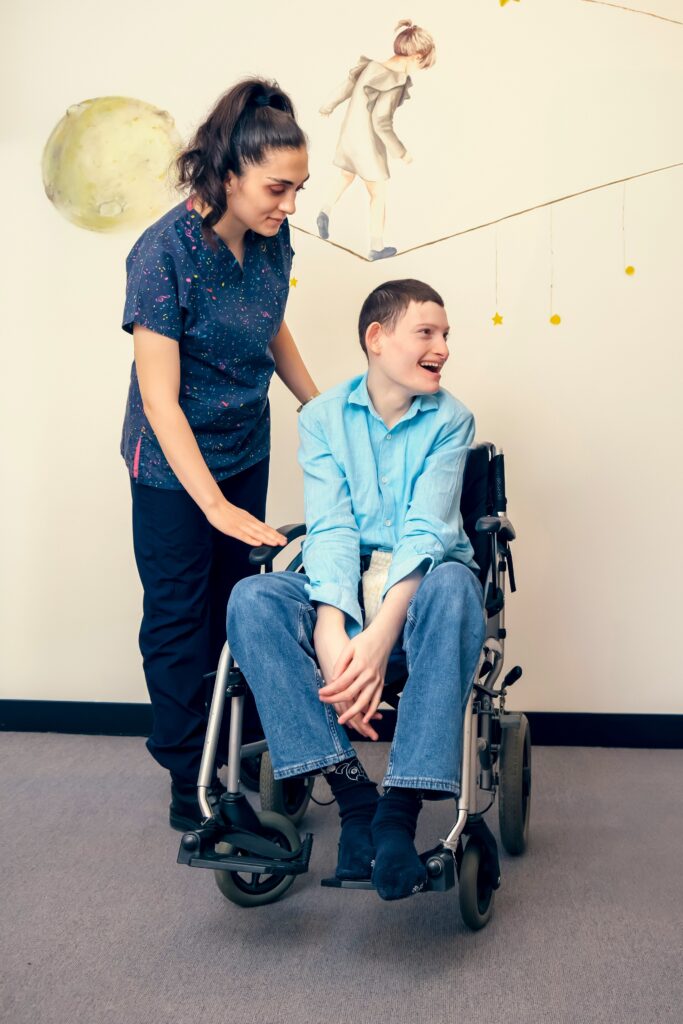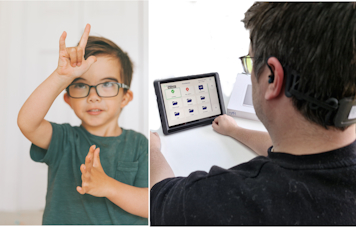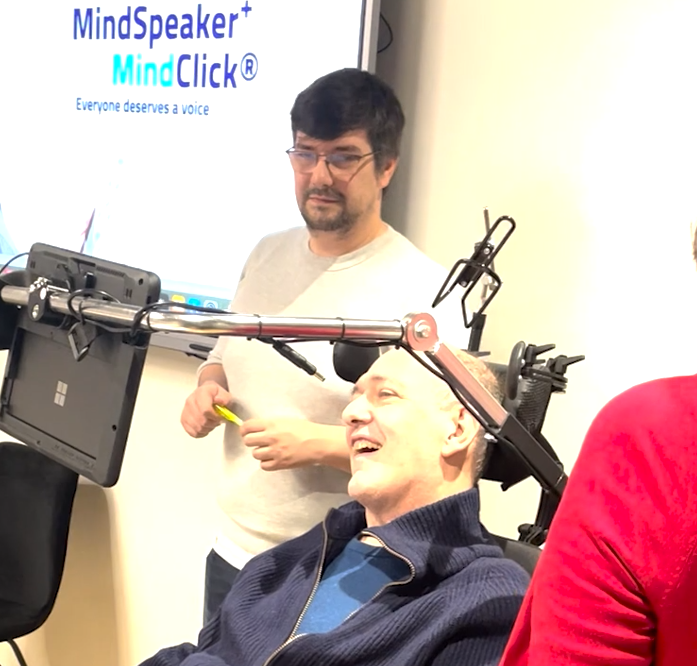Empowering Communication Through Technology
MindSpeaker provides innovative Augmentative and Alternative Communication (AAC) solutions, helping individuals with speech challenges express themselves and connect with others.

What is AAC?
AAC, or Augmentative and Alternative Communication, refers to a variety of methods, tools, and strategies used to support or replace speech for individuals with communication challenges. AAC can be an essential resource for people with conditions such as neurodegenerative diseases, developmental disabilities, or injuries that impact their ability to speak.
Who Uses AAC?
AAC systems support people of all ages with various conditions affecting speech, language, or communication, whether temporary or permanent.
When Is AAC Used?
AAC can be introduced at any age or stage. Early intervention with AAC does not hinder natural speech development and can actually support language learning.
Benefits of AAC
AAC empowers individuals with speech or language impairments to express themselves effectively using tools like symbols, text, or voice-output devices. It enhances independence, social connection, and participation in education or work.
Types of AAC

Unaided Communication
This involves non-verbal communication methods like gestures, facial expressions, and sign language.
Aided Communication
This includes the use of external tools, which can be simple (e.g., picture boards) or complex (e.g., speech-generating devices or computer software).
Sign Language
Formalized systems of manual communication using hands, facial expressions, and body movements.
Picture Boards
Low-tech solutions featuring images or symbols that users can point to for communication.
Speech Devices
Dedicated electronic devices that convert text or symbol selection into synthesized speech.
Software Solutions
Apps and programs on tablets, computers, or smartphones that provide communication tools.
Who Can Benefit from AAC?
AAC is designed for anyone who has difficulty with speech or language, whether temporarily or permanently. It provides a way to communicate more effectively, maintain social connections, and express thoughts and emotions.
- People with developmental disabilities such as autism or Down syndrome
- Individuals with neurodegenerative diseases like ALS or Parkinson's
- People recovering from stroke or traumatic brain injury
- Children with speech delays or disorders
- Patients with temporary conditions affecting speech (e.g., intubation)

Why AAC Matters
For individuals who struggle with speech, AAC offers an empowering solution to communicate with others, maintain relationships, and participate in daily activities. It can be customized to meet the unique needs of each person, ensuring they have a voice, regardless of their physical or cognitive challenges.
Independence & Autonomy
AAC provides individuals with the means to express needs, make choices, and participate in decision-making, significantly increasing their independence and self-determination.
Social Connection
Communication is fundamental to human connection. AAC helps individuals build and maintain relationships with family, friends, caregivers, and their broader community.
Education & Employment
Effective communication is essential for learning and work. AAC enables access to educational opportunities and can open doors to meaningful employment.
Quality of Life
The ability to communicate thoughts, feelings, and needs directly impacts overall wellbeing and quality of life, reducing frustration and improving mental health.
How MindSpeaker Supports AAC

Voice Cloning Technology
Preserves or recreates the user's natural voice for more personal communication
Brain-Computer Interfaces
Enables communication through thought for those with limited physical mobility
Adaptive Learning
Our systems learn user patterns to improve speed and accuracy over time
Customizable Interfaces
Tailored to individual needs, preferences, and abilities
Our Commitment to Accessibility
Research & Development
We continuously invest in research to advance the field of assistive communication technology.
Custom Solutions
We work with speech therapists and users to develop tailored communication systems.
Ongoing Support
Our team provides training, updates, and technical assistance throughout the user journey.
Success Stories
“MindSpeaker’s voice cloning technology allowed my father to keep his own voice after his ALS diagnosis. It’s given him a way to maintain his identity and continue communicating with us naturally.”
Sarah M.
Daughter of ALS patient
James K.
Speech-Language Pathologist
“The brain-computer interface from MindSpeaker has been life-changing for my son with cerebral palsy. For the first time, he can express his thoughts independently, which has boosted his confidence tremendously.”
Linda T.
Parent of user

